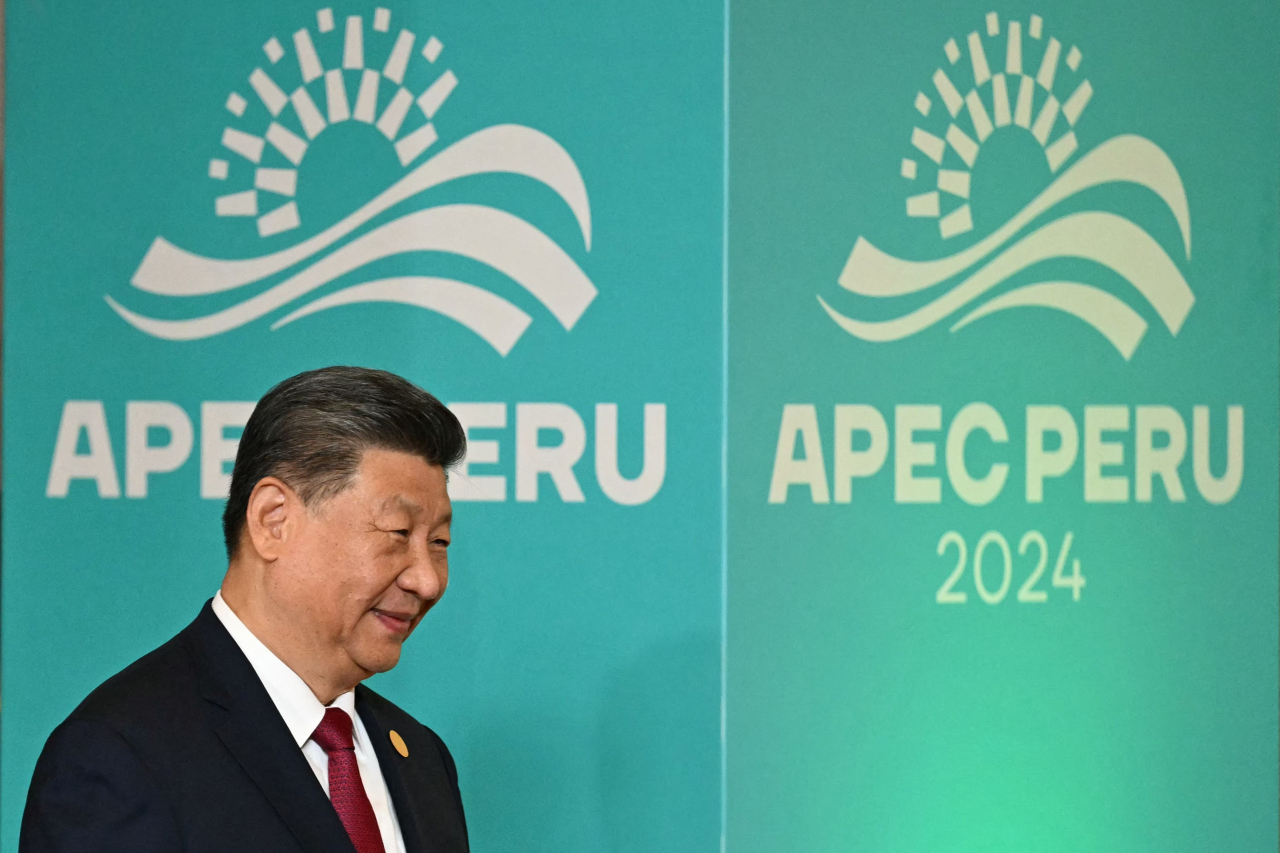
 |
| China's President Xi Jinping arrives at the APEC Economic Leaders' Meeting at the Convention Centre in Lima, on Saturday. (AFP-Yonhap) |
The leaders of South Korea and the United States, respectively, urged Chinese President Xi Jinping to act to address the deepening concerns arising from North Korea's troop deployment to the Russia-Ukraine war, which is nearing its three-year mark.
On Saturday local time, US National Security Adviser Jake Sullivan told reporters in a briefing in Lima, Peru, that US President Joe Biden had pressured Xi in a meeting that same day to stop North Korea from continuing its military support to Russia by sending more troops to fight against Ukraine. The meeting took place on the sidelines of the Asia-Pacific Economic Cooperation summit.
"(Biden) also pointed out that PRC does have influence and capacity and should use it to try to prevent a further escalation or further expansion of the conflict through the introduction of even more DPRK forces," Sullivan said, referring to China and North Korea by their official names, People's Republic of China and Democratic People's Republic of Korea, respectively.
Sullivan also said that Biden underscored his view that North Korea's alleged deployment of some 10,000 troops to Russia to fight against Ukraine "is a deeply dangerous development" both in the European field and on the Korean Peninsula, adding that the deepening cooperation between North Korea and Russia is "likely to enhance the possibility of provocative behavior" by Pyongyang.
These resonate with South Korea's call on China to take necessary actions to curb military collusion between North Korea and Russia, at the first bilateral meeting of President Yoon Suk Yeol and Xi since November 2022 on the occasion of the G-20 meeting in Bali, Indonesia.
Kim Tae-hyo, principal deputy national security adviser of Yoon's office, told reporters in a briefing in Lima, that Yoon urged Xi at a bilateral meeting with the Chinese president on Friday local time on the sidelines of the APEC summit to "play a constructive role" in addressing North Korea's nuclear missile provocations and its military cooperation with Russia, which triggers regional insecurity in the northeast Asia region.
Yoon's Chinese counterparts responded they "hope for an eased geopolitical situation in the region and does not want geopolitical tension on the Korean Peninsula," adding that dialogue and negotiations between the parties concerned is key to finding a peaceful solution to problems arising from the military ties between Pyongyang and Moscow, according to Kim.
But an official of the presidential office said Xi "did not directly mention" what actions China could take to address the potential escalation of conflict in the Ukraine war and on the Korean Peninsula.
Earlier on Friday local time, leaders of South Korea, the US and Japan adopted a joint statement condemning violations of multiple United Nations Security Council resolutions by North Korea and Russia, "especially in light of (North Korea’s) decision to deploy troops to Russia for combat against Ukraine," adding the troop deployment "dangerously expand(s) Russia’s war of aggression against Ukraine."
The three countries will continue to show support to Ukraine, which exercises its "inherent right to self-defense," the statement also read.
Separately on Saturday, Yoon and Japanese Prime Minister Shigeru Ishiba held bilateral talks on the occasion of the APEC summit and "expressed grave concerns" over North Korea's military cooperation, including the troop deployment, at their second meeting since Ishiba was inaugurated in October.
Yoon and Ishiba also expressed their bid to continue meeting frequently free of diplomatic formalities, through what South Korea has dubbed "shuttle diplomacy."
South Korea's National Intelligence Service on Wednesday confirmed that its intelligence indicated that North Korean troops had already started engaging in combat at the Russia-Ukraine war front line in the Kursk region of Russia, near eastern Ukraine.









